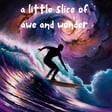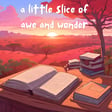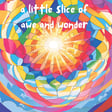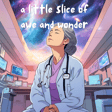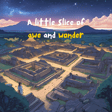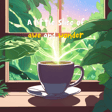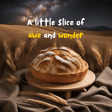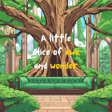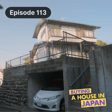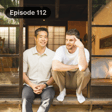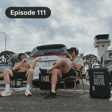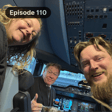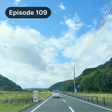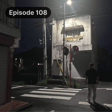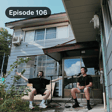Become a Creator today!Start creating today - Share your story with the world!
Start for free
00:00:00
00:00:01

Slice #10: Parenting, Awe, and Navigating an Era of Change
This podcast episode dives into raising future-ready leaders, the interplay of past and future in parenting, and navigating an era of rapid technological and societal changes. Karena De Souza, a futurist and author, discusses the importance of awe, wonder, and heirloom skills in fostering resilience and adaptability for the next generation, blending insights on family, education, and nature.
Find Karena on:
Transcript
Introduction to Karina DeSouza
00:00:21
Speaker
What's up, fellow humans? And welcome to another episode of A Little Slice of On Wonder. Today is really special. I've met with ah Karina DeSouza, who is a futurist and author, a parent. She's written a book called The the Contours of Courageous Parenting. And she has some really ah brilliant prose on her sub-stack as well. And she is encouraging and educating the next generation.
00:00:50
Speaker
So please enjoy this awe-filled conversation about how to retain the spirit of awe and wonder and curiosity in this quickly changing world.
00:01:10
Speaker
Karina, welcome to the podcast. Thank you so much for joining us. My pleasure. Where are you calling from today? I'm just outside Toronto in Canada. Fantastic. I'm going up there in a month or so. Oh, wonderful. Yeah, we're visiting some of my wife's friends. and Not in Toronto, but they they live in Calgary. Oh, that's all the other side of the that's the other side yeah that of the country.
00:01:37
Speaker
I forget that, yeah, it's like when people come to see me in the US, they're like, hey, i'm I'm coming to New York. Can I i come hang out? Well, if you want to take a seven hour flight. Exactly. ah But yeah. um So yeah, thank you so much for joining us again. And I know you're self described, futurist, parent, global citizen and author. But is there a ah way that you like to describe yourself and and what you do?
00:02:04
Speaker
Um, I think that pretty much encapsulates what I do or or sorry, who, who, how I refer to as myself. And I think my mission is more about raising future ready leaders. So I tend to talk a lot to parents and educators about what we can do to raise the next generation of great leaders for 2015, 2017.
00:02:27
Speaker
That's so critical, so important. And you know, surprisingly- And it's scary, but you know, when you think about it, like the the next Obama could be sitting at your dining table right now. Right, right. What a different ah frame. I'll have to definitely admit that I don't don't use that framing a lot with my kids. I'm mostly like, why wouldn't you pay attention? But um yeah, that's awesome. And I think there's so much Cynicism with regards to the next generation and you know some maybe some of it's well founded but it's so important to look at it from this framework of, hey, we we are really raising the next generation of leaders and people who are going to be taking care of this planet.
00:03:09
Speaker
and all
Influence of Indian Upbringing
00:03:10
Speaker
of that. So yeah, and you have a book for the contours of courageous parenting, also a sub stack, a really wonderful sub stack tilt the future. There's a couple of things that, you know, I haven't read a ton, but you had one little article on chasing the Northern Lights. and And there's a few that headlines that just really stuck out as being so, you know, you're really tuned in to a life of awe and wonder.
00:03:37
Speaker
and being connected to the natural world, you know, despite the craziness of parenting and all of that, you're still making time for this. So that's really cool. I'm very lucky when I was young, I yeah spent a lot of time with my grandmother and she taught me a lot of that. I think had I grown up completely in North America or Europe, I mean, I might not have had that deep sense of connection to the soil and to the cycle of nature.
00:04:04
Speaker
And I think because I was in India for five years and I watched the crop cycle and I watched, you know, things like a banyan tree outside our house, which has stood longer than our houses have been built, you know, things like that. It's just, just gives you that sense of permanence, which I think is count. I'm going to say contradicts, but it doesn't contradict in any way. It's like my work is about looking to the future. I feel it's anchored so much in the past because of this.
00:04:31
Speaker
So it adds that waiting that like, if you think about it as a seesaw, a teeter-totter, as much as I think about the future, I'm also like weighing it against what happened in the past. And that kind of grounds me. So I'm able to dream differently about what could be possible.
Awe, Wonder, and Nature
00:04:47
Speaker
Yeah, one thing, one aspect of awe and wonder is this opening up of timescales. And I think that's so cool that you're thinking about the one thing that my dad always says, because we have these big redwood trees in the back of our in the house I grew up in. And he said when they got here, we it just planted them that are just moved I guess we just moved there and they're really small. I don't know if he planted them there, but that we have these tiny trees and they had just grown to these gigantic redwoods in the back.
00:05:15
Speaker
And that that scale, we don't think about that a lot in our daily decisions and our life. And when we see the but distant past connected to the future, I think it opens up just how much how much connection there is and how much we we sort of take for granted. and I'm probably going to have to look it up to see which edition it is. I think it might be like 149 or 150 on my substack.
00:05:43
Speaker
I actually did this manifesto a while ago, but in in it I basically talked about, now I've lost you, give me a second, I've got to get you back. I basically talked about the sense of being connected through the generations. And I thought that was so important because you don't have that sense of caring, like, I think there's, there there's a First Nations phrasing somewhere which says, you know, we don't inherit the earth, we're care caretakers of it for our next generation. You know, that whole sense that you're actually looking after it, you're conserving it, you know, you're caretaking it, you're not actually using it. And I think that's so important to have in mind.
00:06:26
Speaker
Yeah, absolutely.
Technological Changes and Society
00:06:27
Speaker
yeah do you feel and This is thinking about the kids. you know You talk about being someone who is thinking about the the next generation and trying to focus on prepping them for this sort of really seismically shifting world where it does seem like these changes over time, the changes I guess they took.
00:06:47
Speaker
much longer to really manifest in the world, you know like the agricultural revolution or something like that but took took many, many years. and you know Whereas now we have a new AI tool that comes out every week and some of them have the potential of just you know totally overturning huge industries. yeah i mean how do you think about How do you think about kids growing up in this time? Do you think that that perspective um is helpful, having that vast perspective of the past and the future?
00:07:14
Speaker
I think so. I'm actually going to talk to the other part of your question first. You know, we think about this being like a time of such immense change and it is. I'll come back to that in a second, but it isn't the only time we've changed. Right. So it's like ah um I did this great class a couple of years ago and it was, it started off being, I think it was called um the impact of technologies.
00:07:39
Speaker
And when they came up with a curriculum, because it was a cohort-based class, so everyone like fed in what they thought should be part of the curriculum, they started off imagining it was all going to be what we call technology. And then they realized that you know insulin was a technology. The bicycle was a technology. The plow was a technology. And so it's like, when you start thinking of technology in those terms, you begin to see that any technology will change society. And so what we need to think about is how this technology will change society.
00:08:09
Speaker
And this technology will very quickly become defunct and be replaced by something else. right So I think it's having that understanding and that knowledge that this is not the first time that the humanity has faced this is really quite empowering to a young person because they realize that you know this ah as opposed to what their parents are saying, this is not a seismic shift. It is a huge shift.
00:08:37
Speaker
But the car put a whole bunch of industries out of work, who right? But then what did it birth? If you look at the, forget the dollar value, but we've ended up going into space as a result of you know all those technologies that came about. And that would not have been possible if we were still riding horses. So when you start thinking in those terms, you suddenly see, okay, and and I think of AI in that same way.
00:09:02
Speaker
is AI is that first hostless, or actually the internet was the hostless carriage. It had the wheels and you know still had a steering wheel where the the horse would have been. But then you start coming up with the car with the windshield wiper. And so that's AI right now. Who knows where we're going to be like 100 years from now in terms of the equivalent or car development, right? So it's it's going to be like that with AI. It's like the things that it's going to enable us to do, but also how it's going to change society. so The very fact that we had a car changed the way cities were designed. right so like I live in in in a sub area called Oakville. It's very clearly built for an automotive society. right Whereas you can see the clusters of the town and the clusters of Toronto and the clusters of London or New York that were really built for a carriage society. yeah The roads are different. Just the way they're set up, the grids and everything are quite different. so
00:10:00
Speaker
I think all is going to like AI is going to do the equivalent in society as the card did. and that's too long I love that perspective. One thing that came up for me is maybe a tangential point but and related is that when you're mentioning how certain cities are built for, okay, this was a you know built city built for carriages, and yet now you know it's being repurposed, let's say, for for cars. In the same way, we have this like very, very evolutionarily old machinery, cognitive machinery, the brain, you know which is meant for
00:10:33
Speaker
being in natural spaces and slower timeframes. And we're put into this, this world now, where we have this old, old hardware that's is now dealing with very fast things. So like mean what I mean by fast is not just technology, technologically speaking, but like fast food, you know, these things that kind of play on our wiring in a way, but yet almost hijack it.
00:10:59
Speaker
Do you think that there is a need as well to see some of the potential dangers, you know, alongside of what the possibilities and the the hopeful possibilities and do you think that's also important and having.
Raising Children in a Tech World
00:11:16
Speaker
Yeah, always, right? So you need the balance. So i think I think part of your earlier question about how did I see AI and things like that impacting kind of blend into this answer. I look at it from the perspective of being a parent. And my oldest child was born at the time the internet came online. So for me, I have that very clear delineation mark in my head.
00:11:39
Speaker
of what it was to be an industrial era child and what it was to be an internet era child. right and And I could see the development in now like the 28 years or so since the internet has come on board. I kept looking and especially once smartphones came online and I could see the beginnings of the future of work. That's when I started debating or or having this conversation with myself, which is like, what is the world going to look like that my child is going to graduate into? So he was going into university in a very industrial model education system to do theoretically industrial era careers, which by the time he graduated in four years would not like the world had already moved forward. And that's, I think the part that struck me so hard was that
00:12:27
Speaker
in the amount of time. and I think this the education system is very is the same in the US s as it is in Canada, but like in 10th grade, which is kind of like junior, I guess, junior near high. 10th grade would be yeah high school year, sophomore year of high school. Sophomore year.
00:12:41
Speaker
You're kind of making your your choices, at least here in Canada, you're making your choices for like what will be your final set of classes that is going to feed into your university degree, right? So you're making your career decision at that point. And from the then you go from sophomore year, junior year, high school, four years of university. In that time, technology's gone through three cycles of development.
00:13:06
Speaker
And that's what I tried to have a conversation with parents. It's like you cannot hold someone beholden to a decision they made in their sophomore year when by the time they graduate, they're going to graduate in a completely different era. And so I started speaking to parents about what that reality meant for their child.
00:13:24
Speaker
and how they should have conversations with their children that were much more open-ended. But where it really came home for me was like it began to be, all right, wait a second. The world is not functioning the way I knew it. The world is not functioning by my rules anymore. The rules that I'd been raised on, the rules that that were if sufficient for my parents. So I can no longer parent as I was parented.
00:13:48
Speaker
And that was a huge challenge to me because like it it actually brought to me is what value do I now bring to my child? It's like, if I cannot parent, like if I got no no playbook by which to guide them, what do I do now? And that's when I got really interested in the future of work. And so everything I've done since then is this exploration of what can I bring to my child that is still pertinent in a world that's constantly evolving?
00:14:15
Speaker
And so what I came to terms with is something I call EQ, everyone else calls the EQ skills, but I call them the heirloom skills. And I call them the heirloom skills. It's because your great, great grandparents had them and they didn't have PhDs. Some of them barely went to school. But these are the skills that allowed them to migrate from one country to another to survive, to create families, to create work and And then the metaphor I use is like the heirloom skills, the more they used, the more they're polished and they're handed down generation to generation. So it's like the critical thinking, communication skills, community building, all those kinds of things are what I can now hold and give to my child when I cannot give them the IQ skills, which are getting so rapidly outdated. Like I i went to school as a programmer, it'd be absolutely useless to teach my child football.
00:15:09
Speaker
right? Cobalt what, right? So it's like the IQ skills have a rapidly diminishing shelf life. But the EQ skills, the heirloom skills are the things that are generational. And so that is the way I started thinking about it. And I figured, okay, that is what I can pass along to my child. And that is something that my child can pass along for seven generations from now. So if that's someone from my family, it ends up on Mars, that skill,
00:15:39
Speaker
still makes sense, even when the day is not 24 hours or gravity feels different. So everything else that we peg ourselves on has changed. These skills will still persist. So I like to think of it that way. And when you talk about nature, that's the same kind of thing. It's like that persistent element that I focus on.
00:16:00
Speaker
Yeah, EQ skills, so important, have so much lasting power. um One thing that I thought of when you're speaking was that in this new kind of generation where, you know, I, you know, I took a major, for example, that I didn't know existed. It probably just started when I was in college was cognitive science. And, um you know, that field is an interdisciplinary field and hasn't been around very long and speech therapy. I had no idea I'd be part of that. And Who knows how long that's gonna last and with all these changes that are happening and one thing that I've you know, I've made several big turning points in my career and I think that's more and more common for my friends and my generation and even more so for the next generations and one thing that's become really important in this sort of new search for me at least is
00:16:48
Speaker
You're mentioning things are changing so fast and even programming now, you know, it's like chat GPT can spit out your perfect code. yeah But it's like the ability to stop and know what it is that you actually want to do what you are curious about. And I tie a lot of that I've had.
00:17:08
Speaker
few conversations with some people, Vicki included, I think all in wonder, and thinking back to what made you feel all in wonder as a child specifically, are great pointers to that. And I think I i had lost my ability to feel, not totally, but I had lost my connection, my deep connection to feeling that feeling and especially to be using it as a compass in a way. yeah And it it seems like just based on a little bit of your sub-stack that you have also, you're using that as a guiding force to teach your kids as well. I hope so. I hope so.
00:17:46
Speaker
You can only try as best you can, right? Yeah,
Awe in Nature and Life
00:17:49
Speaker
sure. I mean, a lot of this too, it's just like, it's not something that you can control and grasp and you know try and manufacture. I don't know how old your children are. I'm assuming they're under 10.
00:18:01
Speaker
I don't have kids. in In fact, I'm trying for kids right now. So we're on our first. um I'm a late starter. All right. No, I was going to say it's, I think one of the things that I'd heard is let it all climb trees. And and it was the sense of number one, you brought it up earlier on when we were chatting is number one, they don't, they they develop a different sense of risk tolerance.
00:18:25
Speaker
when they engage with nature. But also someone said, how can you dream big if you've never climbed a tree and looked out on the horizon? And that has always stuck with me. you know And and it was it was such a, I don't know if it hits you the same way, but it literally hit me hard because it's like, yes, you know when you climb a tree, number one, you're shimming all the way up, but then you stand there and you're like, hey, I did this. And then, oh my gosh, look what I can see.
00:18:52
Speaker
And I thought that is such a powerful way of engaging children, you know, it's like, you know, or of encouraging parents to let the kids go out there and do big things. What a great metaphor too, because there is that sense of I mean, both just as an activity, you should totally do that, but also as a metaphor in that there's there is totally danger involved. There's risk involved in the things that give us that sense of satisfaction and awe and wonder, which is I feel like something like I think there's maybe utility to video games and stuff like that. I definitely grew up in that era, but it's not the same as really
00:19:31
Speaker
having some physical risk, like the times that I can think back to really feeling awe and wonder as a child, there are they're mostly, there was some element of not being able to control what was happening.
00:19:47
Speaker
I was just talking to my friend last week on a podcast. we We were talking about surfing. And one thing that is so wonderful about surfing is that you're you're subject to whatever nature has in store for you, so you always have to stay humble. But then there are times where you actually are completely in flow with nature and you're just riding this dynamically changing material, and it feels like magic. And, and without that element of danger, sometimes there's no no thrill. So yeah, I totally totally agree with that. I wonder, this is something I ask all my guests is, in your own life, what's a personal story of awe when you know, the way I'm sort of defining this is taken from the UC Berkeley professor's Dacher Keltner, he wrote this book on awe.
00:20:38
Speaker
And so he defines it as basically encountering a vast mystery that that transcends your understanding. So you have to hear you feel this openness like, wow, and it it breaks your framing somehow. I'm wondering if there's anything that comes up, a personal story. Breaks your framing. What a great phrase.
00:21:00
Speaker
And no, when you, when you started that sentence immediately, i I, like one event bounced into my head and I always call it the day I found the two sunsets. So I mentioned that I grew up in India for a while. And there was this one time when my father was visiting back, he'd come back home and he took us to the top of the hill.
00:21:24
Speaker
And we watched the sunset. So I live, I'm from Goa. And so our village, it's probably around, I'm going to say 10 kilometers away from the beach. But so like when you're on the hill, you actually see the beach and the Arabian sea in front of you. And so watch the sunset over the Arabian sea. And then my dad turned to us and said, wait a second. He says, let's run. And so you literally sprinted.
00:21:52
Speaker
and save a good run. And we got to another point on the hill and we watched the sunset again. It was just a slightly different angle, right? And that that blew my mind. Because like you know to me, it was like the sun sets, the sun sets, right? but me But I don't know i don't know how to describe what that did for me, but it just I still remember that very clearly because we didn't really have, my my father was in England at the time and he said, we come back and forth and so we didn't really have that many times to spend with them and so I think that was part of it was just the the joy of being able to have something special with my dad but also this whole idea that if you turn around sometimes you can get the same event twice like literally blew my mind as a 10-year-old. It's so cool. Yeah you know there's one at Sunsets are so like
00:22:44
Speaker
definitely a common theme in all producing experiences. I remember having this experience, it was it quite late, but I just remember watching the sunset and realizing suddenly having the realization that we were moving like that just that we were like the planet was moving that fast. Really? Like see, you could see us moving like that. And that's sort of a frame breaking, you know, spatially frame breaking moment, like we're just floating around in the in this giant cosmic sea. When I think about it, like now as you start saying that, I'm just so blessed. I'm so lucky. There are so many.
00:23:24
Speaker
like just I know I finally got to see the Northern Lights this year in my own town after having traveled half the world looking for it so many times.
00:23:35
Speaker
that was That was cool. That was very cool. But I think another one was like Lake Tikapu in New Zealand, just watching the so like the southern sky. so it's Lake Tikapu will be on the south island of New Zealand.
00:23:49
Speaker
And just literally feels like the heavens are sitting in your hands. It's like, you know, just the immensity. but And theres there are places here in Canada as well, where you like dark sky reserves, where you can get to see them. And just that always blows me away as well. But like the book that you mentioned before, it's actually based on, we took our kids traveling for a year. And so a lot of those stories in there, you know, climbing the Himalayas or, you know, Great Barrier Reef, the Rift Valley for always, for me, always blows me away. The Rift Valley in in in Kenya.
00:24:19
Speaker
Wow, because what is what's there? that that that is So it's basically when you're coming off the Nairobi's on the on the height and then it kind of drops into the Rift Valley, which is like a I guess it was created by seismic shift. And then you get into the safari areas, the Masai and the the Mara's and all those, but it's just this huge vastness in front of you, this huge valley, not even a valley, but it's like immense. And to be, so as you come off,
00:24:49
Speaker
As you're driving down into this, it just, this bigness. that's all yeah right that way I think for me, it also reminded me because I grew up, i I was born in East Africa. And so I remember going through yeah on the trains and having that sense of immensity in space and watching the giraffes and the zebras running alongside the train. It's like, it just gives you that sense of, oh, the world is so big.
00:25:17
Speaker
Thank God. yeah and and I love that. I love that sense of space and immensity. yeah You wrote this line in your post that I think when you're you got a cool picture of the Milky Way, as the heavens open up and outrops the Milky Way, and then we are minuscule and momentary in this vast galaxy. And like how a lot of people will find that scary, yeah I suppose there is a sense of like just we can feel a bit of fear, but it's really, for me, it's this like huge relief.
00:25:49
Speaker
yeah Man, I'm so glad that none of my mistakes are that cosmically significant. so I know. We can wrap ourselves up so wrong. Because it's not only like I done a post quite a few episodes ago now. And I basically talked around the same thought about, you know, the earth, humanity disappearing. Like, you know, if we don't take care of ourselves, my premise was basically the earth will still persist. Just ask the dinosaurs.
00:26:19
Speaker
man won't be here, right? So it's like, what part do we want? We all talk about saving the earth. We're really not saving the earth. We're trying to save us humans on the earth, right? So it's it's like the earth will persist and at some stage, many, many millions of years from now, it'll burn out just like this, but the galaxy will still be there. And so when you start thinking in those terms, you're like, oh my gosh, what am I worrying about of these hundred years that I'm alive? Yeah.
00:26:45
Speaker
I love that. It's just such a, always such a, I think it's anxiety relief. Or we we were talking just a little bit earlier about how there's this mental health pandemic, anxiety and depression.
00:26:59
Speaker
all of these things are rapidly increasing. And I think part of it is this sort of, we are stuck in a lot, looking at a lot of digital mirrors, like on and Instagram and social media, we are, we see ourselves all the time are comparing ourselves to other people and other things and what we don't have. And, and it makes just the, there's this almost like inflated sense of your importance and ah Yeah, I wonder, it's not all bad, obviously, but there is maybe this side effect of an increased worry about yourself. And so then that means that, you know, everything you do becomes potentially
00:27:46
Speaker
disastrous for your, uh, you know, the world's ending because you made this social faux pas on Instagram or whatever. But yeah, this can, um, open you up to a bigger frame. And I think, I think that's the one thing that we need to rebalance is, and I think, uh, we were talking about John Hates book, anxious generation earlier as well. What I got out of reading the parts that I have read so far,
00:28:14
Speaker
was that community kind of level sets. If you are actively part of a family, if you're actively part of a society, if you're actively part of a community in school or in church or neighborhood, even like helping each other out, if you're actively engaging with other people, you begin to see highs and lows. And then you put yourself in context with that. But when you only live in ah what someone
COVID's Impact on Social Interactions
00:28:42
Speaker
calls the rectangle space,
00:28:44
Speaker
right That's when you start of you begin to live everybody else's good life and never seeing their dark side. or're like You're getting an Instagram picture, but you're not seeing the 12-hour hike that it took to get to that spot, to get that sunrise photograph. right and so that's I think what is missing right now is the is that balance.
00:29:06
Speaker
and i And I totally agree with with the book from that perspective is we need to pull people away from their the rectangle spaces, back out into into a few more human spaces. It doesn't have to be all the time, but enough to rebalance, to reset and rebalance, because I think that's, and I'm sure COVID had a lot to do with it as well, because we,
00:29:31
Speaker
I'm very extroverted on a normal day, but after COVID, I've noticed how much more insular I became. Just i didn't just out of sort of out of necessity, and then you fell into the safe space, right? of Yeah, I can look after myself, and i can I'm enough for myself. And you really have to work hard to come back out of that. And so if that happens to me, then I can imagine what would happen in interval.
00:29:55
Speaker
Yeah. And, you know, I was just living in Tokyo actually for two years. And one thing, you know, the thingme suicide rates there are maybe the highest in the world. And there's definitely a sense of, you know, I love Japanese people and I'm Japanese too, but you know, it just, there's a sort of.
00:30:12
Speaker
a weird difference in social communities there, at least in Tokyo, at least in the big cities. I think out you know in in the countryside, they're way more happy because they have these tight-knit communities, or they depend on each other, but in the big city, and maybe this is true of other cities as well, like New York.
00:30:32
Speaker
but There's an expectation that you don't say hi. It's weird to say hi on the street. it And people are in their own bubble, like more than anywhere else I've been. You could be around a lot of people, but really be stuck. like yeah There's these like invisible walls around everybody. And so it it is quite strange to be, when I came back, there was a reverse culture shock of going to like Trader Joe's yeah grocery store. And then this guy just giving me his life story. I was like, whoa, too much information. um But yeah, I do feel like there's a, it's it is so important and it's easy to, I did notice that too. I thought it was just me getting older, but I did notice that I was becoming less, it was harder for me to break. I wouldn't say that I'm totally introverted. Like I have, I can be social, but it takes a little bit of activation energy for me to go up and i like talk to somebody. yes Yeah. And I realized that it,
00:31:29
Speaker
was much harder to do after I hadn't done it for a while. Sort of like if I have, you know, if I don't go to the gym for like a month, it's much harder to go that next time ah versus if I'm practicing it all the time. You've given me an idea now. now i but Think about that and write an essay on the activation energy. I like that. Oh, cool. Because I think that may be something we need to figure out how we
00:31:56
Speaker
we pass along to the next generation. How do we make it easier for them to create those connections? Because they happen in school, right? Because you're thrust into a classroom yeah with relative strangers. but You have your little home group, but for the most part, you have to make, you know, you have to create kinships with other people. um But then once you either start work or you're not working or so many people are working remotely,
00:32:25
Speaker
you know, all those kinds of things, then the reason why you have to go out and engage with somebody else becomes a lot, you do need that activation energy. So we need to create those yeah yeah like catalyst moments. Yeah. And i I forget who I was listening to recently, but there's someone who's saying that a lot of these issues, they go unnoticed because, you know, there's no immediate problems. But then over time you realize that it's almost as if, you know, it's kind of like in, in food when if you eat fast food for a while, it's like your.
00:33:03
Speaker
immune system becomes, you know, you may not feel the effects right away, but your immune system becomes more susceptible to disease, things like that. And so that there are these practices of being solitary, being cut off from other people that kind of similarly affect our, you know, social immune system on a large scale, that when there are these problems like COVID, something happened, and then it It creates breeding ground for mental health crises or less resilient to someone calling you a name or something like that. or
00:33:37
Speaker
count I don't know what you, I mean, I, I had my theories on Gen Z and Gen Alpha and stuff like that way before.
Mental Health and Future Work
00:33:46
Speaker
And then like John Haight came out with his book because I've been watching this since like 2015. And so one of the main reasons I got into talking with parents was because we were seeing so many health mental health crises in our schools here. And a lot of it there was because the parents, because education had gotten so expensive and the parents were footing the bill.
00:34:08
Speaker
It was a case of you'll do what I tell you, not what you want to do. So even though a young person might have been reading the future of work more actively and understanding, I want to be a so of social media person or I want to be like picking up a role that they could see had a future.
00:34:24
Speaker
But their parent would want them to do something like accounting now. Seven years later, we're in chat GPT land and you can, that's one of the things that's going to go yeah very quickly. At least the entry level is going to get disintermediated very quickly. So, but what you started seeing with the at odds with their parents and that was causing a lot of mental health crises. andt they I have a friend who works in the mental health wards here and she was saying how basically they had four beds and 20 times as many clients on an average day and so it was really quite scary and that's why I started getting into the conversation because nobody was talking to parents. like People were beginning to address it with students, they were talking to educators, obviously the employers were talking about the future of work and technology and all the changes there but no one was talking to the parents. When you think about it, the parents are the ones who were are holding the first strings or
00:35:11
Speaker
you know So it's like, yeah don't talk to the parents, you've lost everyone else down I think, yeah, you're so important important in this conversation. we already You have a view ah perspective, which again, going back to the beginning, where you're seeing the past connected to the future, you're seeing the larger system, larger ecosystem yeah in which all of these things are rising. And how important is that? Another thing that's awe inspiring is when you get just, it's almost like you step back a little bit farther and you're like, Oh, this is how this is connected to the system in this way. No, versus like, you know, when you're just treating a symptom, yeah and like, there's a
00:35:46
Speaker
funny anecdote of, you know, my wife's from Malaysia. and In Malaysia a long time ago, they had, I don't know, it was like a rat problem or something. No. um What was it? Basically, they tried to get rid of one species to get rid of this problem and then all of these other problems started happening because, you know, that one species was connected to all these other things. So it was like,
00:36:08
Speaker
And in in the very end, they ended up literally having to airdrop cats from helicopters in into Malaysia. So I just thought it was funny. But yeah, yeah, totally. Yeah, I begin to see how things are interrelated a lot. Sorry, I cut you off. I know you were making it. No, no like i felt like there' was but i know that was it. It was about the the mental health crisis. But i was actually, what I was going was a lot of people were then saying that Gen Z were not like, they were talking about the personality of Gen Z as a huge cohort, right? As opposed to individual people and talking about how they were not responsible or, you know, they had very different ethics and they had different sense of commitment and the mental health issues. And then I was like, all right, I'm going to step back and think about my own children. I'm like, just about the time my kids were like 10 and 12 years old. We had 2008.
00:37:06
Speaker
Right. Or before that, like when they were like two and three years old, you had nine, like nine 11. Right. And then you had 2008 and you had, so all through their formative years, they've been dealing with crisis. And especially the 2008 crisis. I thought was really impactful because there you had huge groups of people.
00:37:28
Speaker
who in my generation had grown up believing that the corporation was going to look after them. And they would give up doing things with their kids, not give up out of right, but like, I mean, both my husband and I worked for pretty substantial companies. So if the company said you're going for an offsite and it happens to be your kid's third birthday, well, you go for the offsite, you know, it's those kinds of choices. You know, you didn't make value recitals or you didn't make prom or whatever it was. And then they get dropped.
00:37:58
Speaker
at 2008, right? And the number of people with which this happened. So if you look at it from a 10-year-old's perspective, you're like, wait a second, my parent didn't come to my soccer game because they said work was important. And now look, I can't get my Game Boy because my dad has no job, right? And it's like, and it I think 10 to 15 are very formative years.
00:38:25
Speaker
A lot of this generation went through that. And so then who do they trust? So now that they're working, they aren't the ones who are saying like, they are incredibly loyal, but they're loyal to themselves first, because they've already seen that corporations are not loyal to their employees. And so to me, that's that plays a big role into how they position themselves. And it's funny, someone else wrote a really nice piece the other day on LinkedIn, I can't remember where I saw it.
00:38:51
Speaker
but essentially saying something something similar, which is they have a really profound sense of obligation to the things that they think are important to them. But I think it's born out of this kind of experience. Yeah. like They have seen what real commitment is and they've seen all these relationships being tested. And so they are making their own judgments as to where they want to put them themselves and their money. So right now I talk a lot about climate as well.
00:39:21
Speaker
And I'm seeing a fair number of people, young people, this is granted now before the election, but essentially give up jobs in big data, give up jobs on wall street and go for jobs, which are slightly less paying or less being in climate. And people look at them going, that makes no sense, but to them it does because to them, if they don't have a.
00:39:46
Speaker
if they don't have a clean earth to raise their families in, what's the point of the big money? you know yeah And so I'm seeing more and more of that happen. And to me, that's a huge indicator. Yeah, yeah one thing that yeah that makes a lot of sense, and I think another factor too is the breakdown ah And I'm not making a moral claim on this in any direction, but just that there's there has been a breakdown of trust in religion and in general across with my generation, one below. And I think that there is a
00:40:23
Speaker
ah a desire to fulfill that religious impulse in a way towards something. And yet, again, you know things that might have done that before, ah job, nationalism, family, all of those things are breaking down. So I think some of that is going towards this care um about something greater yeah and wanting to contribute to something greater is being funneled into climate and other causes.
00:40:50
Speaker
Okay, there I'm going to go yes and. Okay. Now I know this, I know it doesn't, you could cut this out if it doesn't fall into your order. Sure. No, no, I know. I'm just yeah offering a. I have an essay called Mind the Gap. And I can never remember which edition it is. Things like 73.
00:41:11
Speaker
And so at some stage, you can have a read of that one. Great. And it is so,
00:41:20
Speaker
Essentially what it talks about is how, you know, I talked to you about how the eras are changing. And like we talked about, we talked about the cars and things like that. So it's one thing to have a technology shift. So technology shift is we go from the mechanical to typewriter to the electric typewriter, but it's a another thing to go for an era shift, which is what are you were alluding to when you had the agricultural era. And then we've moved into the industrial era.
00:41:46
Speaker
The era shifts actually are much more profound. And that's actually what we're having
Era Shifts and Society
00:41:53
Speaker
right now. We're having an era shift. And when you have an era shift, and this is just me, this is not anything, like a I'm not a PhD in anything, all right? It's just the way i've I've looked back and studied and I've come to these realizations for myself is when you have an era shift, that is when society changes substantially. So the last time we had an era shift,
00:42:17
Speaker
We had the American revolution. We had the French revolution. We had democracy showing up. All this came in with the industrial era and the politics that we're seeing right now, the shift in the dynamics of family, the shift in the way we treat religion, the the shift in the way the economy is going to get restructured. You know, all of these are going to happen and it's not an on off switch. It's something that will take time.
00:42:46
Speaker
So it actually took 230 years for the agricultural era to die out. So if you look at the first patent showing up in 1690 for the industrial engine, the combustion engine, it wasn't until the 1930s when essentially the end of of the risk the the recession that happened, the Great Depression, and they brought in the pension plans and they brought in Social Security and stuff like that. That is to me the formal end of the agricultural era because it said the land cannot feed us anymore. We need to figure out something else. That was like a period of 230 years. Yeah, wow.
00:43:24
Speaker
And so if you're going to see something similar, maybe a little more protracted, but we're going to see something similar. It's going to be at least two or three generations before we come out of this. So my child was literally at the in day one of the internet. wow right So it's going to be my grandchildren and my great-grandchildren by the time we have a proper roadmap for what's happening after this. And in the meantime, our generations, those of us who were raised in the industrial era, our children who were born into the internet era, like These few generations are going to have to be living with a foot in need in both worlds, like part of the world, you have taxes, you' a whole bunch of things which are going to take a long time to turn. And then there's a whole bunch of things which are already turned. right And so we have to we we really are living in this bipolar world.
00:44:10
Speaker
we have to constantly be switching through the day in terms of the technologies we're using, the systems we're using, the conversations we're having, because for every single group that we're interfacing with, we're having to figure out, is this an old world system or is this a new world system? And so that's actually one of the reasons. And so a lot of what I came in to do was talk about how do I coach young people and my generation in transition skills?
00:44:40
Speaker
Because the way I look at it is, if I tell you you've got a ladder to climb and the ladder is rusting and every every time you stand on this slat, it disappears, you just have this sense of unease. If I tell you, wait a second, you're on a roller coaster, they're going to be terrific highs and terrible lows. You know you're on a roller coaster and your whole mental engagement with the process, whether you like it or not, you're positioned differently. And so that's where I position my work.
00:45:09
Speaker
is to say, okay, how do I coach these generations to handle transitions more effectively? Because without that, I just see huge mental, even more mental health issues, right? So the things that we're seeing. And I remember having a conversation with someone young a couple of years ago now before COVID. And I was explaining to this and I was saying to her, I was like, think about something as simple as time.
00:45:34
Speaker
Like in the agricultural world, your definition of time was a day was the sun comes up and the sun goes down. Right? You know, it's granular. It's now your week. The cow needed milking even if it was Sunday, right? They didn't care which day of the week it was. And your year was the crop cycle. And then we come into the industrial era and we got the trains and we've got the factories. And now we're working on calendars and we're working off watches.
00:46:05
Speaker
And now we've come into this new world where we're 24 seven. So each time we've had a profound shift in our relationship with time, that is such a fundamental part of our being that if you don't understand that, you can't understand why you're being, you're flipping around all the time. Because if what you want has changed, that is what causes these shifts.
00:46:28
Speaker
No, that makes sense. Wow. No, it's such a cool perspective. i'm I'm like, I'll need to just sit and think about all of that for a while. There's so many thoughts going on. I really like that last point about time to like, time is an interesting concept. Now, I think right now this is I have no data to support this, but at least in my own life anecdotally, I felt that from being a kid till now, as I've partitioned time into smaller and smaller segments, it becomes more and more oppressive to me. You know, like you don't have, I never think of time anymore, like really as a day cycle as the sun going up and going down. did yeah you there Just something simple like that where, you know, as a kid, you didn't have to think about
00:47:12
Speaker
a lot of that and and now it's like you're so you're so programmed like any child nowadays is okay get ready to get on the school bus you you come off the school bus get ready to get to go do you have your do you have this ready do you have that ready and they're so programmed You know, and it everything has got like a schedule to it. and And I just feel like sometimes it's just good to have that space, you know, that, that, but yeah, but what this lady, this girl slash lady said to me, because she was young at the time, she was like, you know, I couldn't understand, ah I had a sense that things were off and I didn't understand it. She says, I know there's no answer, but at least now I know why I'm feeling upset. Like it gave us something to peg. So I thought that was really interesting.
00:47:55
Speaker
it's great that's That's really important. Yeah, it makes such a difference. you the way you you The disposition to which you approach whatever activity it is, you're mentioning like, oh, is this a rusty ladder? Is this a roller coaster? Just that simple disposition towards that activity changes everything about it. And I think that's something going back to like the all-in-wonder ah component is like when you're in the state of ah you know Well always like the sort of passive feeling of wow this is crazy and wonder being this force that drives you forward more of closer to curiosity where you it drives you to want to figure something out about that thing being in that state is such a different way to live both with time and in in the framework of.
00:48:45
Speaker
talking about this new generation where we're having to flip back and forth. You know you can't think of it as this oppressive, like, you know oh, I have to yeah do all these things and I can't figure it out. And there's also this place where you can think, wow, how interesting like that this is happening. And how cool that I can yeah navigate this new world, this era shift. i What an opportunity.
Gen Z as Explorers
00:49:09
Speaker
Opportunity. I like that word, because that's the the I was just going to lean on that one.
00:49:13
Speaker
It's that is something I actually talk to young people about a lot. I'm like, think about it. So first of all, I call instead of calling them Gen Z, I call them the explorer generation. So it's like they are the first gentleman in Canada, they're Champlain and in the US, you know, a whole bunch of other people who landed and charted the landscape, right? thing They went out with the indigenous tribes and figured out where the rivers were, where the mountains were. They actually went out. They were the explorers.
00:49:44
Speaker
That needs a very different mindset. You don't travel by map, you travel by compass, right? And and right you you really need to have a very different personality. And when I talk about the transition mentality,
00:50:01
Speaker
That is part of what i I am in trying to engage with in younger people is like the sense of don't expect something. Don't expect someone to tell you how to do something. You got to have to be coming to it with enough of of curiosity that you're trying to figure out what the answer should be. Right. Because the person who's telling you is out of date. So what they're telling you might be wrong. So you can't trust them either. Right.
00:50:28
Speaker
But on the other side, it's like when there are no roads on this map and there are no roads on this map is yours to create. So we talked about AI being this issue, right? That that could possibly be changing things. I look at it and I look at, you know, Hamilton, the musical. You think about the opening lines in those, in that musical. These were a bunch of 20 somethings.
00:50:56
Speaker
A bunch of 20 somethings who wrote, like who basically rewrote the world's geography. They created a whole new political system. 20 somethings. So when I turn around, like when people think, Oh, you know, I'm 20 something like AI is going to take away. I'm like, a bunch of 20 somethings came up with this idea of the treasury and the idea of like, you know, they, they basically went up against a whole empire.
00:51:24
Speaker
What makes you think that you're not so capable? Yeah. Yeah. Absolutely. I i i love that. And I want to also, not that I'm pushing back, but another yes and is that you're saying that nobody has the map or nobody, they you know they they have an outdated set of yeah tools, which I think that's true. There's an outdated set of tools, but there I think there is underlying you know wisdom in ancient tradition that um you know points people towards ah theyre you know some some
00:52:01
Speaker
More appropriate direction than another and i think that's where we can where it's confusing because where you know there is this. It used to be like you know in the industrial revolution let's say you have these particular jobs where you're teaching this exact specific skill set that will be you know.
00:52:21
Speaker
then passed on and tested exactlyed and checked right yeah tested checked all that. And now you're dealing with very abstract things that are almost inexpressible, but that that have that and that had now have this new playground, like you're talking about, like this new space of exploration, this new generation, they have no idea how this is exactly going to turn out and how to engage with it in in in the right way. But I would say that, you know, maybe there is in any new thing that maybe, at least in my life, I found that I was way too, at times, I was almost on the other side where I was way too arrogant about
00:53:05
Speaker
what, you know, what I knew. And, you know, they don't know anything. But and then, in you know, in the final analysis, and maybe you come to this on your own, you realize how much really basic wisdom there is that can guide you in the right direction, maybe not in a specific way, but in a way that help helps you ground you in something that's not just this like nihilistic black pit, you know. um And I think wonder and awe is one thing that is like a compass. It is. And and nature, right? Totally. And nature are really good things. So true. Maybe this could be like kind of a final yeah closing up. But as you've been parenting, and me going to trying to be a parent soon, do you have advice and it seems like you've done such a wonderful job just like
00:54:00
Speaker
taking your kids on these adventures and keep them in connected to nature and all of that. Do you have any advice for you cultivating on wonder for our parents navigating this new world?
Fostering Awe in Children
00:54:12
Speaker
I don't know if I have advice. I just have, I think pride. So I've noticed now that my kids will text me photographs of nice sunsets and sunrises.
00:54:24
Speaker
And I take that as a coach. Try and get two in one night. I'm like, wow. so So that's what they associate with mom. That gives me so much joy when they'll be like, mom, I saw the sky. And they'll be in like.
00:54:38
Speaker
Germany or New York or someplace. And they were like, mom, I saw this guy and I just thought about him. Like, so all those times when I was driving them, I'm like, oh, check out this guy because I counted for something. That's what um i I think. ah I think the only tons of advice to offer, but I think for a child to know that they are loved unconditionally, I think gives them a sense of confidence from which they can experiment to their heart's content.
00:55:07
Speaker
I always feel like I was completely at moments, money poor, but always abundant, like absolutely abundant in love and connection. And that gave me such a safety net. So I have a huge capacity for risk taking, but I think that's because I know that if I fail, I have somewhere to come home to always. And I think that that can, that, and I do think that is so crucial in today's world because I think the best ideas are going to come from people willing to take chances. And we need some pretty darn big ideas right now to solve all our problems. So I think, you know, the more we can and encourage that, just let young people or anyone know that they're supported in many ways and so that they can just go out there and dream big. There's no such thing as a crazy dream. You heard it. You heard it. You heard it, folks. Dream big.
00:56:02
Speaker
Karina, thank you so much for your time. It's been like such a wonderful conversation. We hit an hour just right on the nose. So that was perfect. And where can people find you if they want to connect? I think the easiest place is my Substack. So it's called tiltthefuture.substack.com. OK, I'll add that in the show notes for everybody. My website is karina.dissouza.com. And you can get me under that on LinkedIn as well. But Substack will find me fastest, I think. Well, thank you so much, Karina.
00:56:31
Speaker
My pleasure. I hope hope you have an awe-filled day. Thank you.

